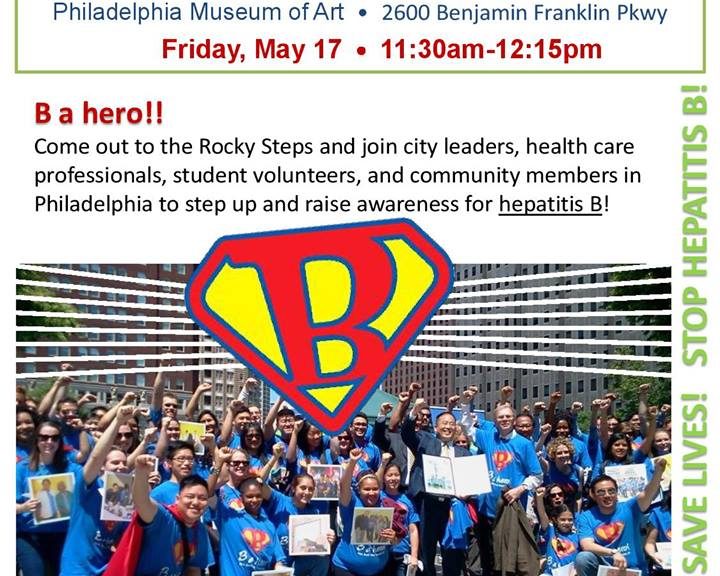 Theobald Owusu-Ansah of the Theobald Hepatitis B Foundation works tirelessly to raise the profile of hepatitis B in Ghana, where the HBV prevalence is approximately 30% in blood donors. Through collaboration with others, and heightening awareness with Ghanaian celebrities, Theobald and others were able to raise viral hepatitis awareness, and provide free screening and HBV vaccination during their World Hepatitis Day event this year. Read his account below and check out Theobald and the work he and his foundation are doing at the www.theobaldhepb.org or find THBF on Facebook.
Theobald Owusu-Ansah of the Theobald Hepatitis B Foundation works tirelessly to raise the profile of hepatitis B in Ghana, where the HBV prevalence is approximately 30% in blood donors. Through collaboration with others, and heightening awareness with Ghanaian celebrities, Theobald and others were able to raise viral hepatitis awareness, and provide free screening and HBV vaccination during their World Hepatitis Day event this year. Read his account below and check out Theobald and the work he and his foundation are doing at the www.theobaldhepb.org or find THBF on Facebook.
Viral hepatitis is the leading cause of liver cancer, which is the second most common cause of cancer deaths in Africa. On World Hepatitis Day, we urged the government to take actions ASAP to improve hepatitis awareness, monitoring, prevention and treatment. ASAP is a blue print framework for Global action, developed by the WHO to guide national government on the effective ways to prevent and control the transmission of viral hepatitis. This framework has four axes:
1. Awareness raising, partnership promotion and resource mobilization,
2. Scientific evidence that drives policies and actions,
3. Access to immunization and information to prevent transmission,
4. Provision of screening, care and treatment.
Thousands of Ghanaians live with viral hepatitis. About a third of Ghanaians living with viral hepatitis are unaware of their status and are not receiving care and treatment for the condition. It is estimated that hepatitis B kills over 1 million people each year, and an estimated 1 in 12 persons are currently infected and have to face life with chronic liver disease.
Ghana belongs to one of the areas where the prevalence of chronic HBV infection is high (≥8%), and that of hepatitis C is from 5-10%. There is high prevalence in approximately 30% among blood donors. In the year ending 2010, the incidence of viral hepatitis in Ghana was 43/100,000 population, with 102 deaths, which represents a 30% increase as compared to the year 2006 incidence of 30/100,000 population. (Source: www.theobaldhepb.org)
Ghana is rated a high-risk country for hepatitis B & C with between 10 and 15 percent prevalence rate. Out of every 100 Ghanaians, 13 may test positive for hepatitis B, which is far more prevalent than HIV/AIDS.
On the 20th July 2014, Celebrities in Ghana united to raise funds to support free Hepatitis B screening and vaccination. The program was under the theme “Celebrities Car Wash”. Celebrities including Okyeame Kwame, Ghana Rap Doctor, former national black stars captain Stephen Appiah, Ghanaian actor Van Vicker and others volunteered to wash public cars for a fee to raise funds to support the programme.
The staff of Theobald Hepatitis B Foundation, Okyeame Kwame Foundation and other medical officials joined the celebrities for the car washing fundraising event. Members of the public took advantage of the celebrities’ car wash to bring their cars to be washed by their favorite’s celebrities. Celebrities expressed their interest in becoming viral hepatitis ambassadors in Ghana.
The event showed that you don’t need a big bank account to be able to make a difference, but with a bit of vision, one can create awareness.
On that day, we are calling on the government to develop and implement coordinated national action plans to fight viral hepatitis. The Theobald Hepatitis B Foundation in collaboration with the Hepatitis Coalition of Ghana, Okyeame Kwame Foundation together with MDS Lancet Laboratories, Roche and Ridge Hospital RPD on Saturday 26th July, 2014, offered free hepatitis B screening and vaccination to hundreds of people at James Town – Mantse Abgona in Accra. Out of 359 people screened, 49 people tested positive and they received counseling on what to do and what not to do, in terms of treatments and other biochemical tests they needed to undergo.
The Rapper observed that the youth turned out for the screening this year and expressed appreciation for the turnout. “I am really glad to see most of the young people come for the screening. This is to say that the youth is giving attention to health and this also indicates that we are moving in the right direction as a people,” says Okyeame Kwame.
The president of the Theobald Hepatitis B Foundation, Mr. Theobald Owusu Ansah delivered his speech for the occasion on the theme: “HEPATITIS: THINK AGAIN”, calling on the government to give much attention to Hepatitis B.
Thank you to all World Hepatitis Day supporters, sponsors and the media who volunteered their time, supplies, and/or funds to support this year’s events, and raising the profile of viral hepatitis in Ghana.








![5-17-13[1]](https://wp.hepb.org/wp-content/uploads/2013/05/5-17-1311-1024x701.jpg)









